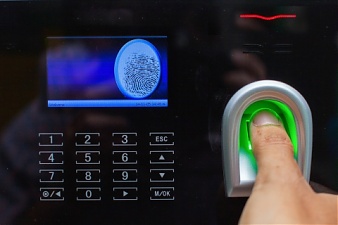Estonia, Good for Business, Investments, Legislation, Technology
International Internet Magazine. Baltic States news & analytics
Tuesday, 13.01.2026, 12:54
Estonia to create automatic biometric identification system database
 Print version
Print version |
|---|
ABIS is a central database for storing biometric personal data -- facial and fingerprint images -- collected in the framework of national procedures in order to contribute more effectively to security and crime prevention. The government decided to set up ABIS in 2017 and it is planned to be implemented by the end of 2021.
ABIS will contain biometric data collected within the framework of procedures for identity documents, such as passports, ID-cards and residence permit cards, as well as entry bans, short-term employment of foreigners, visa applications, and so on. Biometric data from the national fingerprint register collected in the framework of criminal proceedings will also be collected there.
"The main purpose of the creation of the Automatic Biometric Identification System database, or ABIS database, is to contribute more effectively to ensuring security, preventing crime and gathering evidence in criminal proceedings. At present, information systems containing biometric personal data in Estonia are built with a different technical solution, which makes it difficult to compare data between different databases. Also, a large part of the databases in use are out of date by now," Veiko Kommusaar, deputy secretary general of the Ministry of the Interior for internal security, law enforcement and migration policy, said. Institutions may use ABIS data only for their statutory purposes, in accordance with the principle of minimality -- the data shall be processed as little as possible and to the extent necessary to achieve the purpose of the procedure.
According to Kommusaar, establishing the ability to automatically compare fingerprints and facial biometrics will help increase the security and reliability of identification and verification of identity, facilitate the tracing of missing persons, prevent illegal immigration and enhance the detection of forged documents and the use of false or double identities, and so on. "Over the last ten years, expectations and demand for daily procedures in the digital world have changed and it is important for Estonia as an e-state to keep pace with these changes. Increased availability of mobile and internet connections and the proliferation of smart devices could lead to an increase in identity theft. Such changes will inevitably lead to pressure to provide even more secure technological solutions and more robust measures for identity management," he said.
The government made the decision to create the ABIS database in 2017, and the Ministry of Justice, the Police and Border Guard Board, the Center for Information Technology and Development (SMIT) of the Ministry of the Interior, and the Estonian Forensic Science Institute are also contributing to its creation. By the decision of the government, 17 million euros were allocated for the development and maintenance of ABIS for the period 2019-2025. The ABIS database is planned to be implemented by the end of 2021. In terms of technical implementation, the state's partners are IDEMIA and Cybernetica AS.
- 28.01.2022 BONO aims at a billion!
- 26.08.2021 LLC Dizozols Investments finalizes investment attraction deal with Crowdestor with record-high profits
- 13.02.2021 Моя жизнь в газете. Очерки по новейшей истории Латвии. Глава 1
- 30.12.2020 Накануне 25-летия Балтийский курс/The Baltic Course уходит с рынка деловых СМИ
- 30.12.2020 On the verge of its 25th anniversary, The Baltic Course leaves business media market
- 30.12.2020 Business Education Plus предлагает анонсы бизнес-обучений в январе-феврале 2021 года
- 30.12.2020 Hotels showing strong interest in providing self-isolation service
- 30.12.2020 EU to buy additional 100 mln doses of coronavirus vaccine
- 30.12.2020 ЕС закупит 100 млн. дополнительных доз вакцины Biontech и Pfizer
- 29.12.2020 Latvia to impose curfew, state of emergency to be extended until February 7








 «The Baltic Course» Is Sold and Stays in Business!
«The Baltic Course» Is Sold and Stays in Business!

